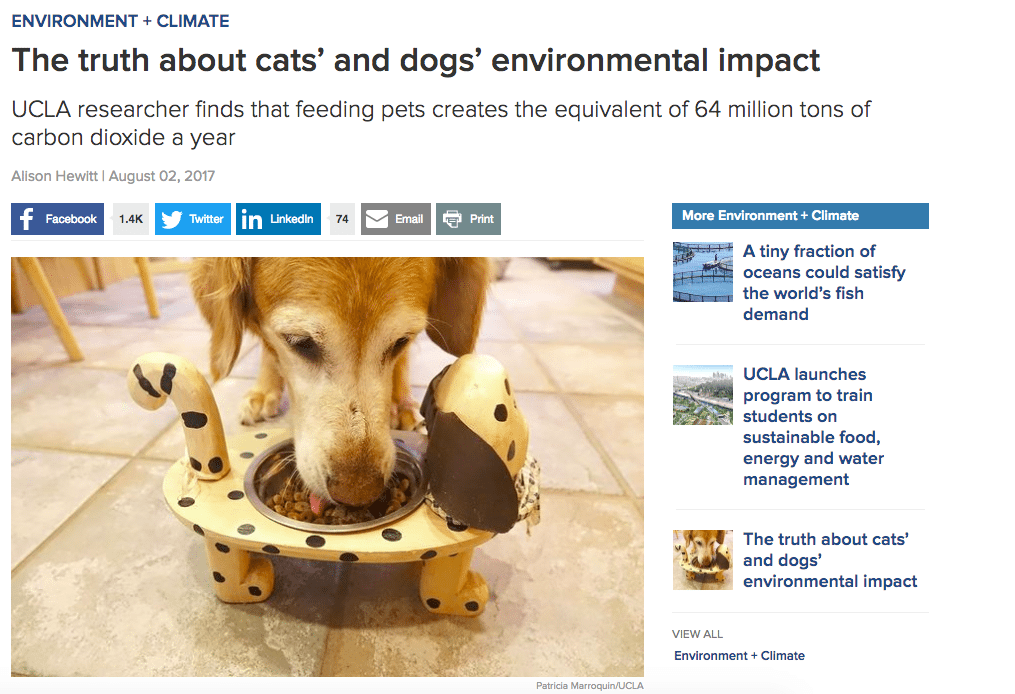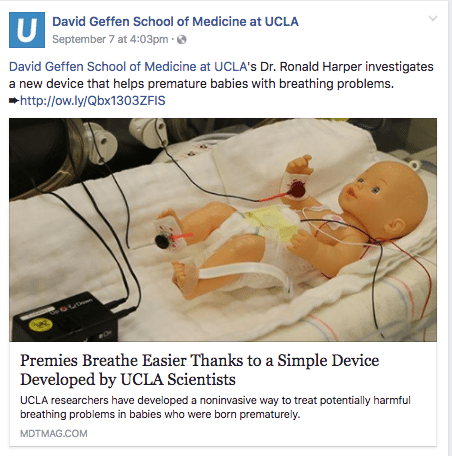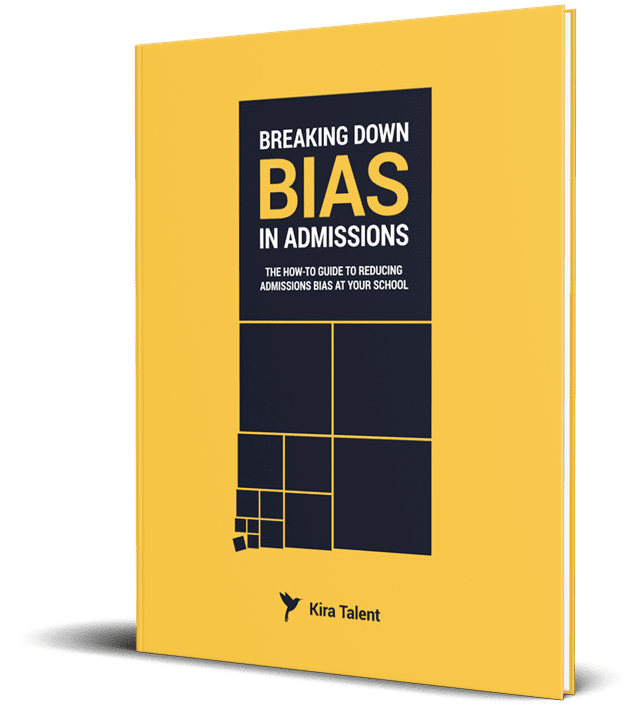Recruitment and research often act as opposing, siloed arms of the same institution. However, recruitment and admissions have a huge opportunity to use their institutions’ research as a recruitment tool.
Having a solid research-to-recruitment strategy means you need to have a pulse on the work of your faculty and tell their stories like you would your most successful students.
Build a Research-Recruitment Relationship
Creating an open communication channel where you can receive updates on interesting research initiatives, faculty awards, speaking engagements, and media appearances will give you fantastic content to work with as you talk to potential students.
Depending on how your school is structured, this could mean forming a research-specific relationship with your marketing and communications team or directly with a contact on the faculty side. Set up regular meetings that work realistically with your goals and how much time you have to commit to this project. For some this could be weekly, for others this could be quarterly.
Once you identify the person who will be your link to research, consider asking them questions like:
- Who are the faculty members that students should be most excited to learn from?
- Which faculty members consistently receive excellent classroom evaluations? Why?
- Which faculty are up for teaching awards? Which faculty are up for major research funding?
- Who are the faculty that are most active online?
- How do faculty members prefer to be contacted with recruitment-specific requests? Do you know any faculty who would particularly be interested in this new initiative?
- What interesting or important new research is coming out in the next six months? How will the school broadcast it?
Identify Your Faculty Rockstars
Even if your school is not a top-ranked, highly-funded research institution, you have faculty rockstars. They could be contributing to valuable research, doing unique things in the classroom, running interesting side initiatives, or initiating change in the community.
Once you identify these faculty members, create short summaries of their research specializations you can build into a handy ‘cheat sheet’ for your team.
Putting the spotlight on your faculty members in recruitment communications, at events, and in conversations with potential students, can excite and entice potential students with the opportunity to learn from these interesting and intelligent individuals.
Tell research stories
Whether it's working with your internal research department, marketing, and media relations, or with faculty directly, you need to find ways to tell faculty stories.
Create and share online content that shows the real world impact of your faculty’s research. There are dozens of forms this content could take. Really, here are a dozen ideas:
- Write a short blog post on relevant new research, highlighting the findings, like UCLA has done in the example below.
- Share a link to a news article that a faculty member contributed 'expert insight' in your next newsletter or social media post.
- Feature a faculty member's comments on a current event, this could be a blog post, video, live event, or a social media post.
- Share faculty profiles in your emails and on your blog that are written with students in mind (unlike the research-based biographies on your website).
- Tweet a quote from a faculty member on a newsworthy issue or offering a study tip.
- Take a photo of faculty at work, teaching, speaking, in the lab, conducting ethnography, etc., and post it on Instagram or Facebook.
- Kick off a podcast series where faculty members share a story about when they were getting their graduate degree.
- Facebook Live Q&A with students and their favorite faculty members about the program or a current event in the industry.
- Create a regular "10 things you didn't know about this faculty member" feature to show the human side of your professors.
- Promote a Reddit AMA (Ask Me Anything) with a faculty member.
- Send a FAQ about 'this program' email to your prospects with faculty members' answers to the questions.
- Ask faculty members to guest blog about either their research work, a current event, or one of the courses they teach.
UCLA's media relations department tells fascinating research stories, like this one for UCLA geography professor Gregory Okin:

And here is how UCLA's David Geffen School of Medicine tells great stories on their Facebook page:

Meanwhile, Harvard Medical School offers 'Science Sunday,' a video series with their faculty members on Facebook:

Encourage social-savvy academics
Many academics are seeing the value of being active on Twitter, Reddit, and speaking to the media about their research. Promote your online personalities to your prospects, to showcase the creative personalities that make up your faculty.
Tip: You can coach faculty to use social media. Maybe it isn't in your role, and maybe you cannot be available that often, but try to find a way to offer support and training to your faculty members. Work with your team to offer one-on-one or group training sessions, brainstorming on 'content ideas,' or be available for support.
Just showing a professor how to set up her own Reddit account, favorite a tweet, or publish a LinkedIn post, could be the push needed to get her active online.
Here are four fantastic social-savvy academics who have mastered Twitter:
- Daniel Drezner (@dandrezer), Professor of International Politics at The Fletcher School
- Rebecca MacKinnon (@rmack), Visiting Affiliate in Global Communication Studies at University of Pennsylvania
- Alec Couros (@courosa), Professor in the Faculty of Education at University of Regina
- Marion Nestle (@marionnestle), Professor in the Department of Nutrition, Food Studies, and Public Health at New York University
Even if your school is not a top-ranked, highly-funded research institution, you have faculty rock stars. They could be contributing to valuable research, doing unique things in the classroom, running interesting side initiatives, or initiating change in the community.
Keep the conversation going offline
Promote offline events that give students a chance to experience face-time with faculty. As important as online communications are, schools can solidify their relationships with prospective students through in-person, face-to-face interactions.
If faculty members are speaking at public events anywhere in the world, even if they aren't recruitment events, promote and highlight these activities to give prospects a chance to hear their future professor speak.
More strategically, think about how you can get faculty on the road to do lecture tours in areas where your prospective students live. If travel isn't an option, look into a webinar series where faculty can share their insights to prospective student subscribers.
Gating the broadcast as a "special viewing" for prospects will make them feel special because they are getting exclusive educational content for free.



